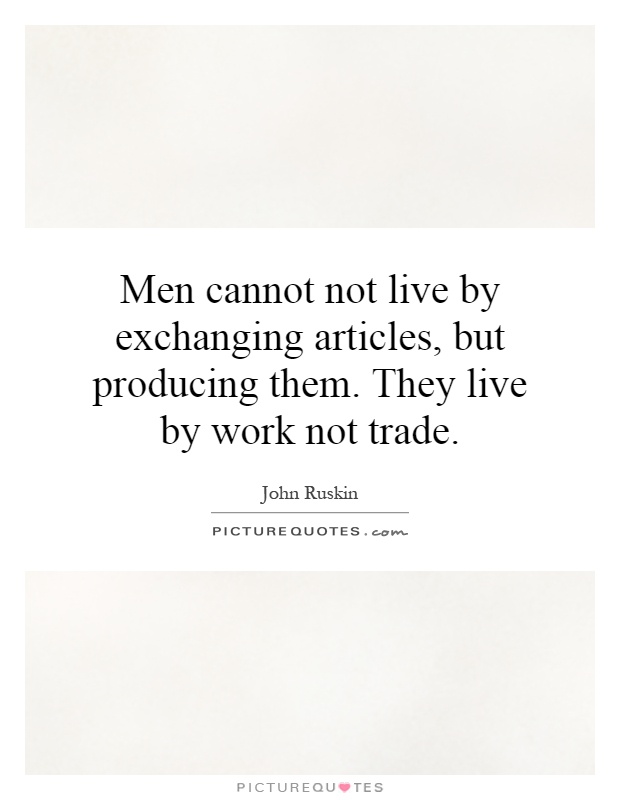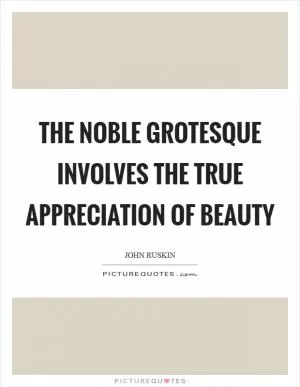Men cannot not live by exchanging articles, but producing them. They live by work not trade

Men cannot not live by exchanging articles, but producing them. They live by work not trade
John Ruskin, a prominent English art critic and social thinker of the 19th century, believed that true wealth and fulfillment come from the act of creating and producing, rather than simply engaging in trade and commerce. In his writings, Ruskin emphasized the importance of craftsmanship, labor, and the creative process as essential components of a meaningful and fulfilling life.Ruskin argued that the true value of a society lies in its ability to produce and create, rather than in its capacity for trade and exchange. He believed that the act of making something with one's own hands, whether it be a piece of art, a piece of furniture, or a building, is a deeply fulfilling and enriching experience that connects individuals to their work and to the world around them. In Ruskin's view, the act of creation is a form of self-expression and self-realization that brings meaning and purpose to life.
Ruskin also believed that the emphasis on trade and commerce in society was detrimental to the well-being of individuals and communities. He saw the rise of industrialization and mass production as dehumanizing forces that alienated people from their work and from each other. Ruskin argued that the pursuit of profit and material wealth at the expense of craftsmanship and quality was leading to a decline in the moral and spiritual values of society.
For Ruskin, work was not just a means of earning a living, but a way of life that should be approached with passion, dedication, and integrity. He believed that true happiness and fulfillment could only be achieved through the act of creating and producing something of value. In Ruskin's view, the true measure of a society's success is not its wealth or its material possessions, but the quality of its work and the creativity of its people.












 Friendship Quotes
Friendship Quotes Love Quotes
Love Quotes Life Quotes
Life Quotes Funny Quotes
Funny Quotes Motivational Quotes
Motivational Quotes Inspirational Quotes
Inspirational Quotes